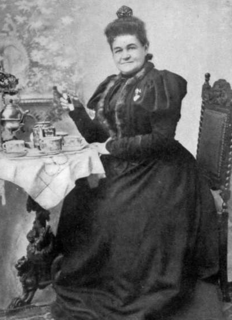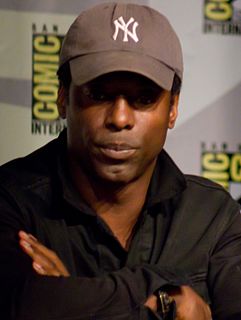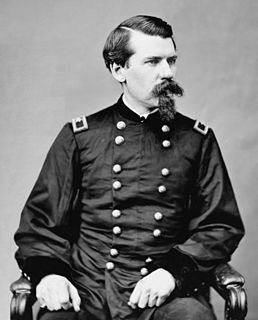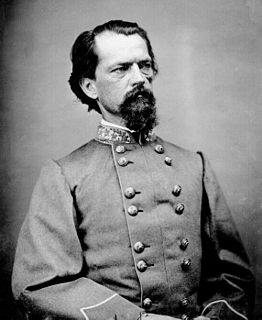A Quote by Heather Cox Richardson
In the 1850s, as the numbers of Americans who were not invested in the slave system grew, the South's leaders felt they had to entrench their power in the government or it was only a question of time until lawmakers would begin to regulate, or even outlaw, slavery.
Related Quotes
If you are going to abolish slavery, that opens up all these other questions: what system of labor is going to replace slave labor? What system of race relations is going to replace the race relations of slavery? Who is going to have power in the post-war South? The Emancipation Proclamation doesn't answer that question, but it throws [it] open.
I can't say with certainty that slavery would have ended more quickly and more completely if the South had been allowed to leave and escaped former slaves had been allowed to remain free, and the North and the rest of the world had been a positive influence on the South. However, it's certainly a possibility that it would have ended sooner if the southern slave owners had agreed to a system of compensated emancipation and freed the slaves without a war and without secession, as most nations that ended slavery did. That absolutely would have been preferable to the Civil War as it happened.
I had a guy at the Groucho bar clawing at my arm nearly in tears saying that until he saw The Departed he thought Americans were the ones on TV. I didn't know you had accents. I didn't know you had a class system. I didn't know you were like us. To which the answer is, probably only where I grew up, but while we're at it don't watch television and think it's the United States of America.
Grant began by expressing a hope that the war would soon be over, and Lee replied by stating that he had for some time been anxious to stop the further effusion of blood, and he trusted that everything would now be done to restore harmony and conciliate the people of the South. He said the emancipation of the Negroes would be no hindrance to the restoring of relations between the two sections of the country, as it would probably not be the desire of the majority of the Southern people to restore slavery then, even if the question were left open to them.
I realized that most white Americans knew very little about our history and our struggle, and were having difficulty understanding the basis for our agitation and our resistance and our complaints. I also discovered that while black Americans had a sense of the beauty and tragedy of the journey from the time of slavery until now, we were not rooted in the specifics. I thought one way to familiarize people with that history would be through the voices of the great folk artists.
Many Southern Plantation owners were working towards the day when they could convert their investment to more profitable industrial production as had been done in the North, and others felt that freemen who were paid wages would be more efficient than slaves who had no incentive to work. For the present, however, they were stuck with the system they inherited. They felt that a complete and sudden abolition of slavery with no transition period would destroy their economy and leave many of the former slaves to starve - all of which actually happened in due course.
When government is invested with money power it rises above the citizen and under the profession of protecting him may actually constitute the greatest threat to his well-being and safety. The power which control of the money system gives to government to interfere in and direct and even take the life of the individual should not exist on this earth. No man or group of men is warranted in holding this terrible power over fellow men.
Slavery's crime against humanity did not begin when one people defeated and enslaved its enemies (though of course this was bad enough), but when slavery became an institution in which some men were 'born' free and others slave, when it was forgotten that it was man who had deprived his fellow-men of freedom, and when the sanction for the crime was attributed to nature.
The mistakes (of leaders) are amplified by the numbers who follow them without question. Charismatic leaders tend to build up followings, power structures and these power structures tend to be taken over by people who are corruptible. I don't think that the old saw about 'power corrupts and absolute power corrupts absolutely' is accurate: I think power attracts the corruptible.
As for the South, it is enough to say that perhaps eighty per cent. of her armies were neither slave-holders, nor had the remotest interest in the institution. No other proof, however, is needed than the undeniable fact that at any period of the war from its beginning to near its close the South could have saved slavery by simply laying down its arms and returning to the Union.
Thus the white men and Native Americans were able, through the spirit of goodwill and compromise, to reach the first in what would become a long series of mutually beneficial, breached agreements that enabled the two cultures to coexist peacefully for stretches of twenty and sometimes even thirty days, after which it was usually necessary to negotiate new agreements that would be even more mutual and beneficial, until eventually the Native Americans were able to perceive the vast mutual benefits of living in rock-strewn sectors of South Dakota.






































